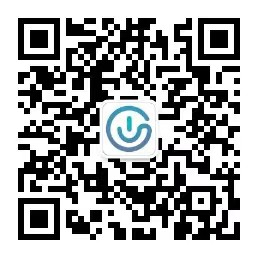《移动应用开发Android》教学大纲
课程代码 | 045100801 |
课程名称 | 移动应用开发Android |
英文名称 | Mobile Application Development (Android) |
课程类别 | 选修课 |
课程性质 | 必修 |
学时 | 总学时:48实验学时16:0实习学时:0其他学时:0 |
学分 | 2.5 |
开课学期 | 第三学期 |
开课单位 | 计算机科学与工程学院 |
适用专业 | 计算机科学与技术、网络工程、信息安全 |
授课语言 | 中文授课 |
先修课程 | Java程序设计 |
课程对毕业要求的支撑 | 本课程对学生达到如下毕业要求有如下贡献: №2.问题分析:能够应用数学、自然科学和工程科学的基本原理,识别、表达、并通过文献研究分析计算机复杂工程问题,以获得有效结论。 2.3 能够应用计算机专业基础知识进行计算机复杂工程问题分析、识别、表达的能力。 №3.设计/开发解决方案:能够设计针对复杂与计算机相关工程问题的解决方案,设计满足特定需求的系统、单元(部件)或工艺流程,并能够在设计环节中体现创新意识,考虑社会、健康、安全、法律、文化以及环境等因素。 3.2掌握设计针对复杂计算机相关工程问题的解决方案(包括设计满足特定需求的系统、单元(部件)或工艺流程等)所必须的专业核心知识。 №4.研究:能够基于科学原理并采用科学方法对与计算机相关复杂工程问题进行研究,包括设计实验、分析与解释数据、并通过信息综合得到合理有效的结论。 4.2掌握基于科学原理并采用科学方法对与计算机相关复杂工程问题进行研究计算机科学与技术问题建模、分析测试技能。 №5.使用现代工具:能够针对与计算机相关复杂工程问题,开发、选择与使用恰当的技术、资源、现代工程工具和信息技术工具,包括对复杂工程问题的预测与模拟,并能够理解其局限性。 5.2 掌握工程设计实践技能。 №6.工程与社会:能够基于工程相关背景知识进行合理分析,评价计算机专业工程实践和复杂计算机工程问题解决方案对社会、健康、安全、法律以及文化的影响,并理解应承担的责任。 6.1 培养评价计算机工程项目的设计、实现和运行的方案,以及复杂工程问题的解决方案对社会、健康、安全、法律以及文化影响的基本能力。 |
课程目标 | 完成课程后,学生将具备以下能力: (1)掌握Android平台的基础知识:Activity, Service, Content Provider, BroadcastReceiver, Intent, 基础控件,碎片, 数据存储,多媒体应用等。[2.3、3.2、4.2、5.2、6.1] (2)能够根据生活中问题设计开发Android手机应用,并在手机上运行。[2.3、3.2、4.2、5.2、6.1] |
课程简介 | 本课程的目的是使学生理解移动开发环境特别是智能手机的基本概念和基本知识,掌握Android手机软件开发的基本原理、方法与技巧,并能运用Eclipse、Android Studio等相关开发工具解决实际问题,培养学生综合运用所学知识分析问题和解决问题的能力,以及移动软件设计和开发能力。 |
教学内容与学时分配 | (一)课堂思政+Android概述的介绍 3学时 1)港珠澳大桥的介绍 2)Android发展 3)Android基本概念 4)Android开发平台Android Studio (二)Activity-视窗 3学时 1)Activity的概念 2)Activity的生命周期 (三) Intent-桥梁 6学时 1)Intent的概念 2)显式Intent 3)隐式Intent (四)基本控件+布局 3学时 1)基本控件:TextView、Button、EditText、ImageView、ProgressBar、AlertDialog、ProgressDialog 2)线性布局+相对布局 (五)Fragment 3学时 1) Fragment 2)Framelayout (六)数据存储 8学时 1)SharedPreferences 2)SQLite数据库 (七)广播+内容提供器 6学时 1)广播机制 2)内容提供器 |
实验教学(包括实验学时、实习学时、其他) | 16 |
教学方法 | 课程教学以课堂教学、课外作业、综合讨论、网络以及授课教师的科研项目于积累等共同实施。 |
考核方式 | 本课程注重过程考核,成绩比例为: 平时作业和课堂表现:30% 期末考试(闭卷):70% |
教材及参考书 | 现用教材:郭霖 “第一行代码 Android”第二版本,人民邮电出版社 主要参考资料: 【1】深入理解Android 邓凡平 机械工业出版社 【2】疯狂Android讲义第3版本 李刚 电子工业出版社 |
制定人及制定时间 | 李粤 2019年10月 |
“Mobile Application Development (Android)” Syllabus
Course Code | 145279 |
Course Title | Mobile Application Development (Android) |
Course Category | Specialty-related Course |
Course Nature | Elective Course |
Class Hours | 40 |
Credits | 2 |
Semester | 4th Semester |
Institute | School of Computer Science & Engineer |
ProgramOriented | Computer Science, Network Engineer, Information Security |
Teaching Language | English |
Prerequisites | Java Programming Design |
Student Outcomes (Special Training Ability) | After the class, students can acquire the ability of analyzing and solving problem based on the knowledge they have already learned, as well as the ability of designing and developing applications running on mobile devices. |
Teaching Objectives | To enable students to design and develop some small or medium scale Android mobile application under real requests. |
Course Description | The course aims to make students understand mobile development environment (especially the basic concepts and knowledge about smart phones), learn fundamental method and skill on developing Android application and use development tools, such as Eclipse, Android Studio, to solve problems. |
Teaching Content and Class Hours Distribution | 1 .Getting Start with Android Development 31) Understanding Android development SDK and tools, as well as the way how to get them. 2) Learn to build Android development environment. 3) Familiar with the Android interface programming. 4) Learn how to create a new Android project and run it on the emulator.
Design an application to check whether students are familiar the components and related filed of Android and the life cycle of Activity or not. 3. Intent 3 1) Know how to change activities. 2) Pass parameters between different activities. 4. Layout 3 1) Get familiar with the concepts of Layout. 2) Use multiple types of Layout, such as LinearLayout, RelativeLayout and FrameLayout. 5. Fragment 3 1) Understand the concept of Fragment. 2) Know when and where to use Fragment. 3) Use FragmentManager to change UI in Activity 6. Database 3 Know two main classes included in Database: SQLiteOpenHelper and SQLiteDatabase. 7. BroadCast + ContentProvider 3 1) the concepts of BroadCast 2) the concepts of ContentProvider 8. UI- Material Design 3 1) ToolBar 2) Layout Pattern |
Experimental Teaching | Yes |
Teaching Method | Teaching in classrooms and Practicing for real life |
Examination Method | Attendance and homework: 30% Final examination: 70% |
Teaching Materials and Reference Books | 1)Textbook and Reference Books for Lab Beginning Android 4 Application Development Wei-Meng LeeJohn Wiley 2014-11-262) Multimedia Teaching Resources (e.g. Website, Courseware, etc) developer.android.com |
Prepared by Whom and When | Li Yue, Zhang Jing |
“Mobile Application Development (Android)” Syllabus
Course Code | 145279 |
Course Title | Mobile Application Development (Android) |
Course Category | Specialty-related Course |
Course Nature | Elective Course |
Class Hours | 40 |
Credits | 2 |
Semester | 4th Semester |
Institute | School of Computer Science & Engineer |
Program Oriented | Computer Science, Network Engineer, Information Security |
Teaching Language | English |
Prerequisites | Java Programming Design |
Student Outcomes (Special Training Ability) | After the class, students can acquire the ability of analyzing and solving problem based on the knowledge they have already learned, as well as the ability of designing and developing applications running on mobile devices. |
Teaching Objectives | To enable students to design and develop some small or medium scale Androidmobile application under real requests. |
Course Description | The course aims to make students understand mobile development environment (especially the basic concepts and knowledge about smart phones), learn fundamental method and skill on developing Android application and use development tools, such as Eclipse, Android Studio, to solve problems. |
Instruments and Equipments | Computer, Eclipse+Android Studio |
Experiment Report | 1-Description 【Objective and Requirement】 【Environment】 2-Content 【Background】 【System Design】 【Result】 3-Conclusion 4-Teacher’s Comments and Score |
Assessment | Attendance : 30% experimental report: 70% |
Teaching Materials and Reference Books | 1)Textbook and Reference Books for Lab Beginning Android 4 Application DevelopmentWei-Meng LeeJohn Wiley 2014-11-262) Multimedia Teaching Resources (e.g. Website, Courseware, etc) developer.android.com |
Prepared by Whom and When | Li Yue, Zhang Jing |
“CourseTitle” Experimental Teaching Arrangements
No. | Experiment Item | Class Hours | Content Summary | Category | Requirements | Number of StudentsEach Group | Instruments, Equipments and Software |
1 | Activity+Intent+Layout Or Listview/ Recyclerview | 4 | 1) Design an application to check whether students are familiar the components and related filed of Android and the life cycle of Activity or not. 2) Make students understand the differences between process and thread in Android. 3) Know how to change activities. 4) Pass parameters between different activities. Or 1)Familiar with Listview/ Recyclerview. 2)Understand the concept of Listview/ Recyclerview. 3)To learn and use SQLiteOpenHelper & SQLiteDatabase. | Demonstration | Compulsory | 1 | Computer, Eclipse/Android Studio |
Media+Network | 4 |
| Demonstration | Compulsory | 1-4 | Computer, Eclipse/Android Studio | |
Service+Multi-thread | 4 |
| Demonstration | Compulsory | 1-4 | Computer, Eclipse/Android Studio | |
API | 4 |
| Demonstration | Compulsory | 1-4 | Computer, Eclipse/Android Studio |



